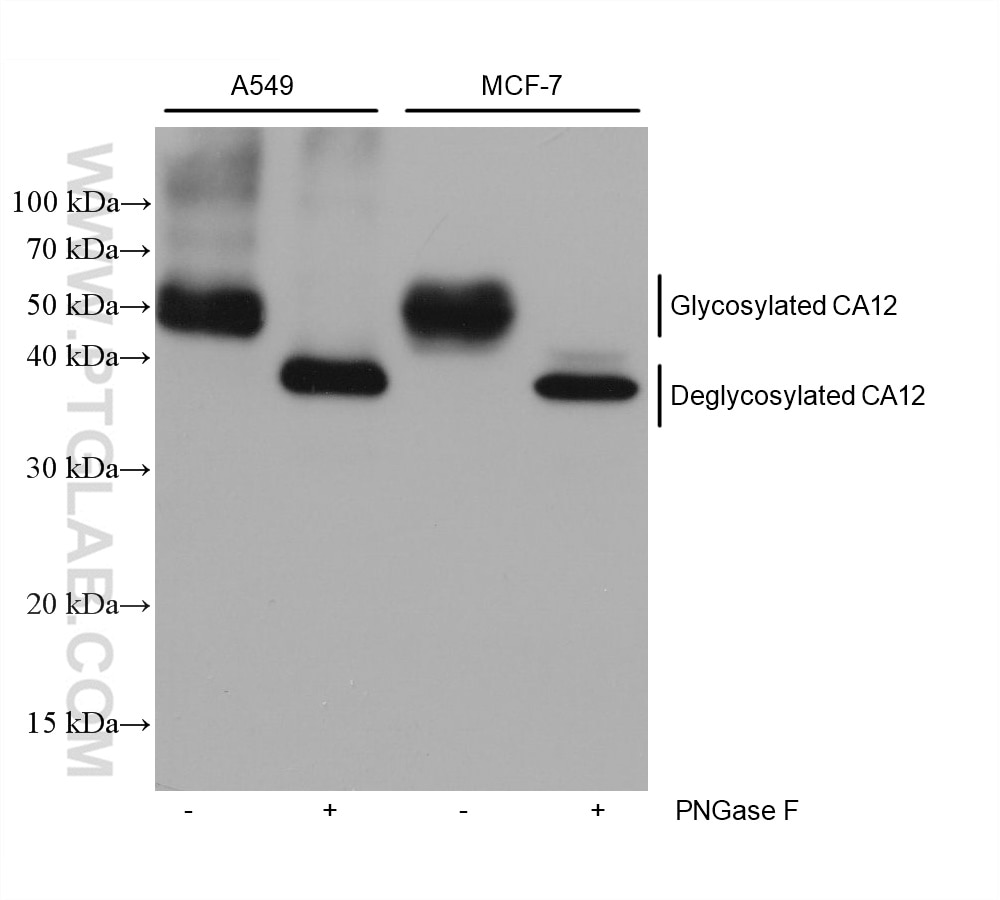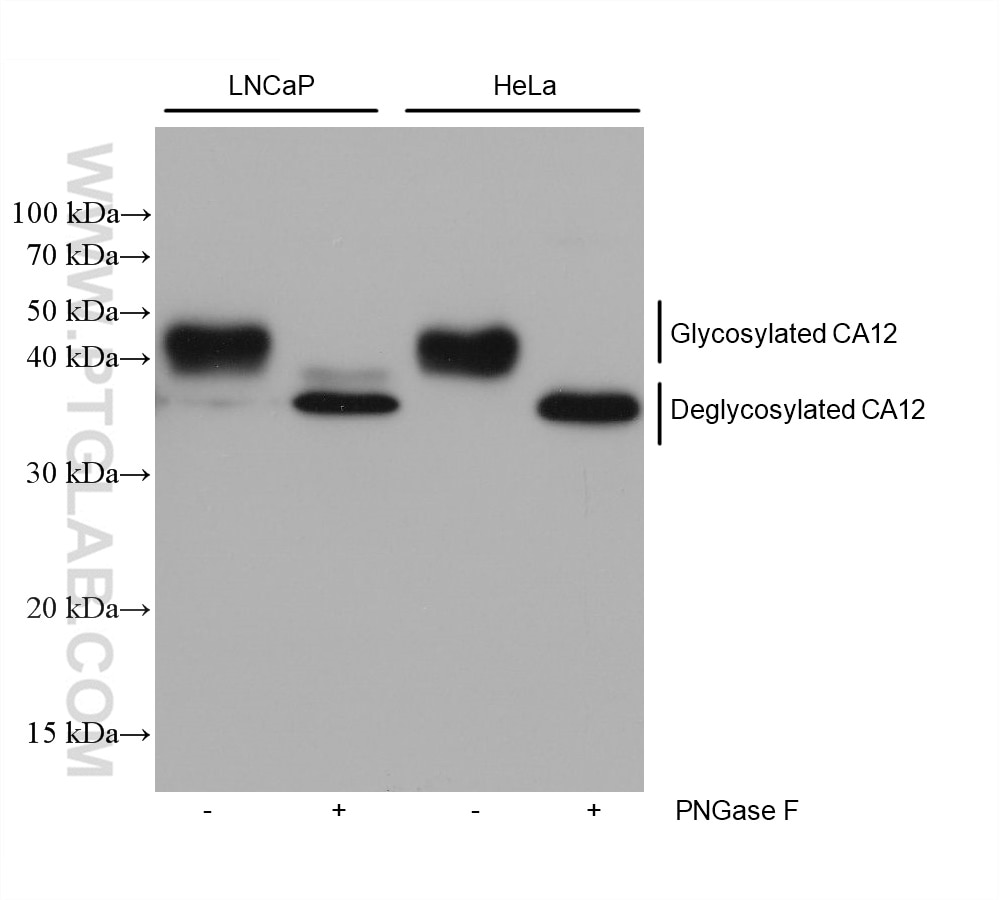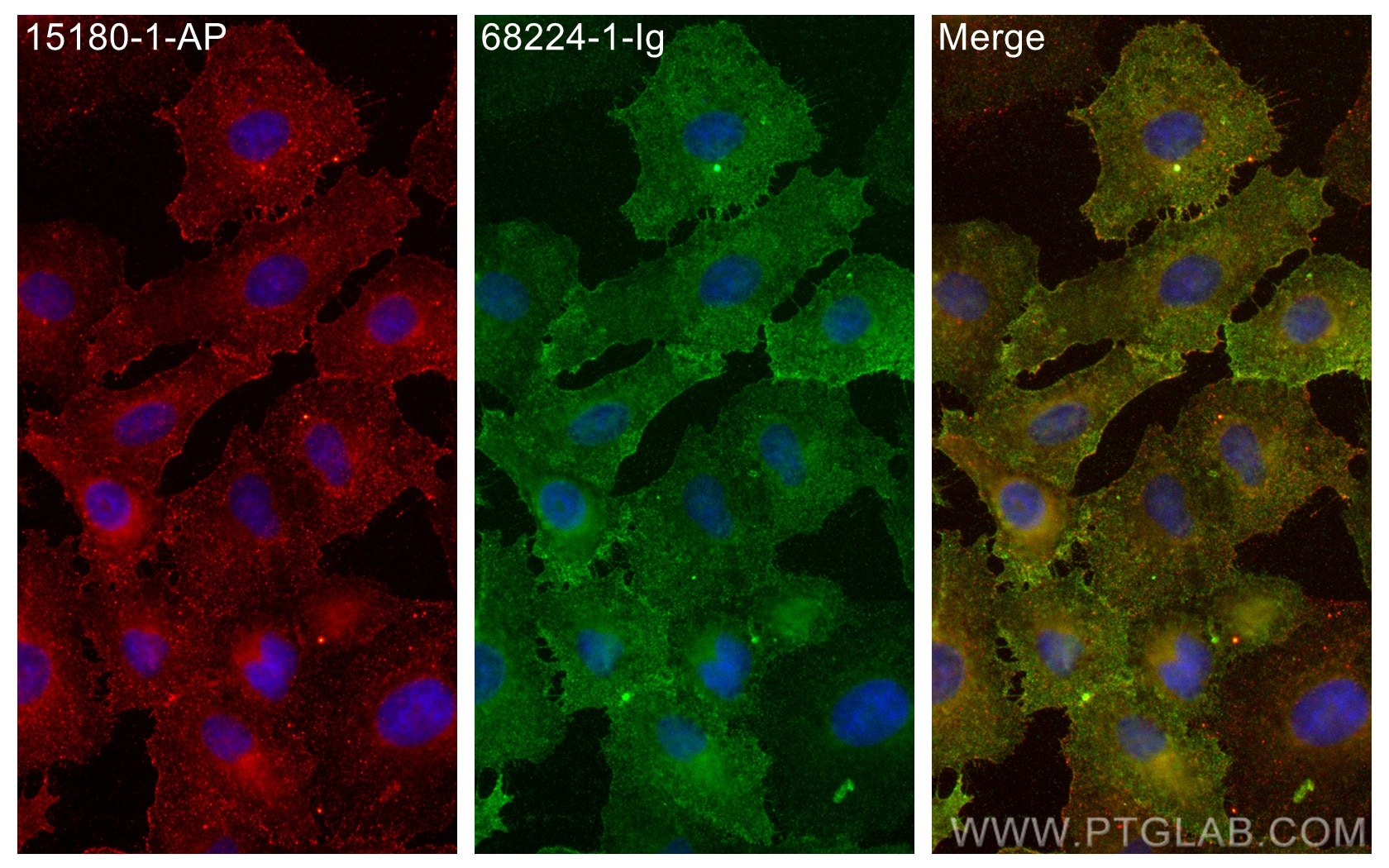Tested Applications
| Positive WB detected in | A549 cells, LNCaP cells, MCF-7 cells, HeLa cells |
| Positive IF/ICC detected in | A549 cells |
Recommended dilution
| Application | Dilution |
|---|---|
| Western Blot (WB) | WB : 1:5000-1:50000 |
| Immunofluorescence (IF)/ICC | IF/ICC : 1:1000-1:4000 |
| It is recommended that this reagent should be titrated in each testing system to obtain optimal results. | |
| Sample-dependent, Check data in validation data gallery. | |
Product Information
68224-1-Ig targets CA12 in WB, IF/ICC, ELISA applications and shows reactivity with Human samples.
| Tested Reactivity | Human |
| Host / Isotype | Mouse / IgG1 |
| Class | Monoclonal |
| Type | Antibody |
| Immunogen |
CatNo: Ag7235 Product name: Recombinant human CA12 protein Source: e coli.-derived, PET28a Tag: 6*His Domain: 27-293 aa of BC000278 Sequence: VNGSKWTYFGPDGENSWSKKYPSCGGLLQSPIDLHSDILQYDASLTPLEFQGYNLSANKQFLLTNNGHSVKLNLPSDMHIQGLQSRYSATQLHLHWGNPNDPHGSEHTVSGQHFAAELHIVHYNSDLYPDASTASNKSEGLAVLAVLIEMGSFNPSYDKIFSHLQHVKYKGQEAFVPGFNIEELLPERTAEYYRYRGSLTTPPCNPTVLWTVFRNPVQISQEQLLALETALYCTHMDDPSPREMINNFRQVQKFDERLVYTSFSQGI Predict reactive species |
| Full Name | carbonic anhydrase XII |
| Calculated Molecular Weight | 39 kDa |
| Observed Molecular Weight | 38-45 kDa |
| GenBank Accession Number | BC000278 |
| Gene Symbol | CA12 |
| Gene ID (NCBI) | 771 |
| RRID | AB_2935312 |
| Conjugate | Unconjugated |
| Form | Liquid |
| Purification Method | Protein G purification |
| UNIPROT ID | O43570 |
| Storage Buffer | PBS with 0.02% sodium azide and 50% glycerol, pH 7.3. |
| Storage Conditions | Store at -20°C. Stable for one year after shipment. Aliquoting is unnecessary for -20oC storage. 20ul sizes contain 0.1% BSA. |
Background Information
CA12 belongs to the alpha-carbonic anhydrase family. It reversible hydration of carbon dioxide. Overexpression of the zinc enzyme CA12 is observed in certain human cancers. The structure reveals a prototypical CA fold; however, two CA12 domains associate to form an isologous dimer, an observation that is confirmed by studies of the enzyme in solution.
Protocols
| Product Specific Protocols | |
|---|---|
| IF protocol for CA12 antibody 68224-1-Ig | Download protocol |
| WB protocol for CA12 antibody 68224-1-Ig | Download protocol |
| Standard Protocols | |
|---|---|
| Click here to view our Standard Protocols |








